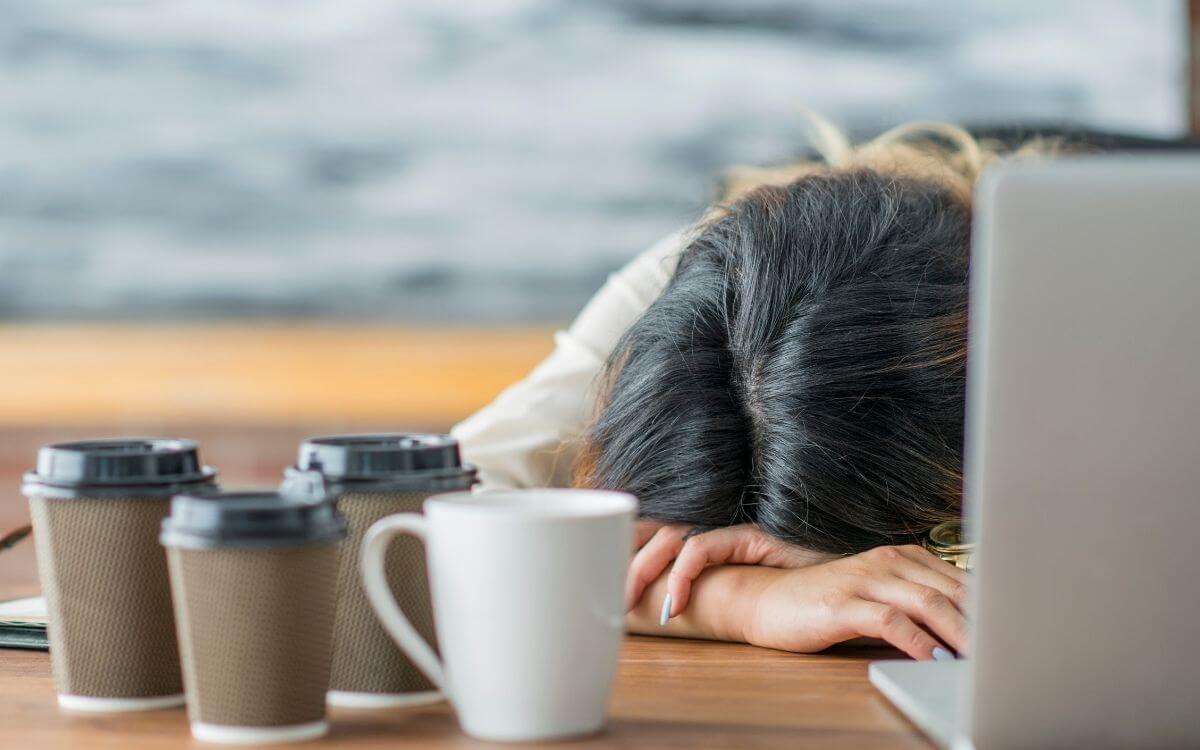Mental exhaustion, when you’re chronically ill.
Mental exhaustion.
Another person fainted on the platform… Let’s talk about mental exhaustion.
Quite often, either on my way or way back from work, I see people fainting or collapsing on the station platform.
Shaking in fear and surrounded by a helpful bunch of people, they struggle to get up and comprehend what has happened. It’s a picture I see almost on a weekly basis now.
A combination of genetics, brain chemistry, traumatic events, environmental factors and the daily challenges we face whilst trying to keep up with our hectic modern lifestyles is causing us anxiety, exhaustion, and ultimately chronic physical illness.
It seems like an epidemic of anxiety has reached every corner of the globe.
Living in a rat race where people feel that they do not have enough time in the day to keep up with everything, people not having enough money to pay their bills, or sometimes even eat.
It is no wonder that everyone seems out there for themselves, they are just trying to survive and this often creates a lot of anxiety, frustration, anger, and above all sadness for a lot of people.
Some of them might just seem selfish, rude, or arrogant, but the majority of them are simply thinking of their best interests under the circumstances.
It doesn’t mean they are bad people, it often means they are very vulnerable people. Welcome to life, my friends!
Everyone gets anxious. Some people, like myself, don’t experience it often and if we do, it’s a mild and barely noticeable, a two-minute rush of adrenaline, and then it’s over.
I put this down to the fact that I am quite a laid-back person and have been lucky enough not to have experienced any significant trauma in my life.
But there are people, who have been through a lot of trauma in the past, and this has created lots of triggers for them, so when they experience anxiety, they experience it in a very severe way.
People can experience regular bursts of anxiety and the outcome of its repetitive nature, causes them to feel extremely exhausted with a brain fog head that no amount of sleep seems to ease at all.
They go to bed earlier than usual, wake up every morning and the story continues…
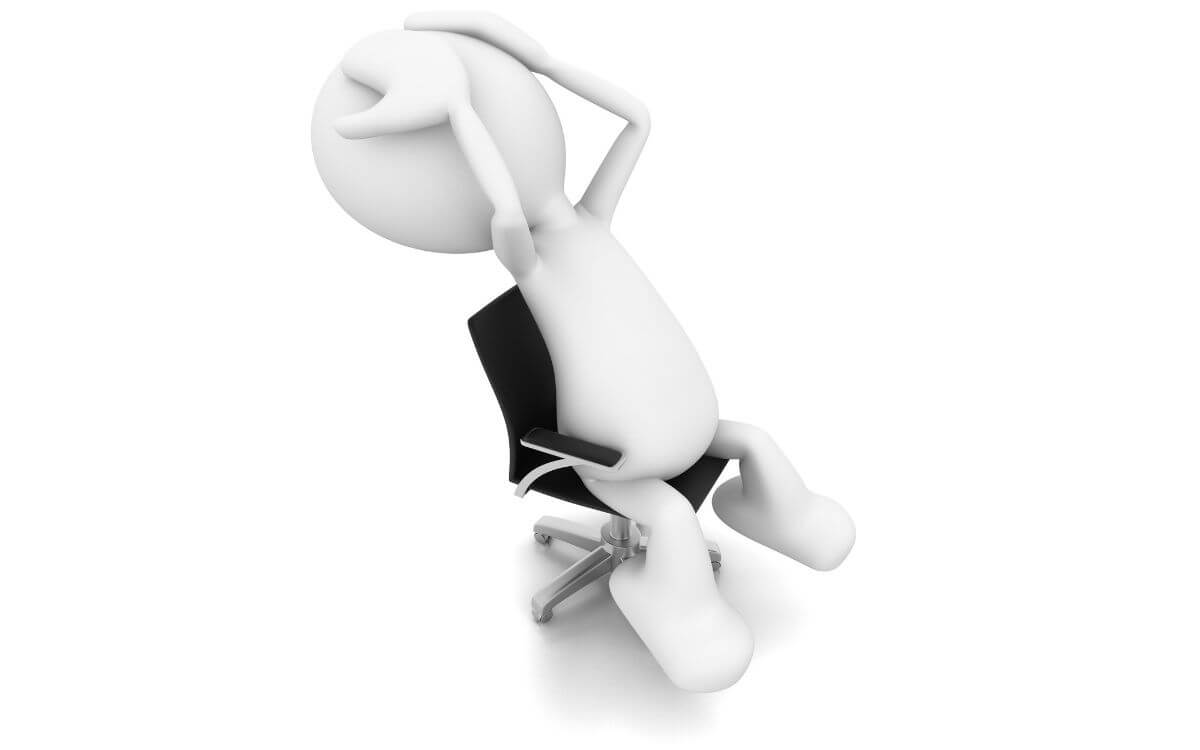
Exhaustion.
Emotional exhaustion can appear when someone experiences a period of excessive stress at work or in a person’s personal life. Sometimes both.
Exhaustion caused by anxiety can be like nothing you have ever experienced before. It is not the usual tiredness, like after a visit to the gym. It’s worse. It has a negative impact on both your mind and body.
Your head is foggy, your thoughts never seem to stop unraveling, from one scenario to the next.
Constant anxiety can make you feel emotionally drained, overwhelmed, and fatigued.
My wife’s life is impacted by endometriosis and so she feels a constant stream of worry and apprehension. These feelings tend to build up over a long period and she sometimes doesn’t notice the early warning signs that she is heading for another meltdown.
But I see them. She tries to hide her emotions from everyone and that only adds up to the anxiety.
And can all begin with one little worry but then it multiplies.
Sometimes she asks me in the evening, “Why do I feel so tired?”
Constant anxiety can have a significant impact on a person’s behavior and what follows life and relationships.
In this article, I want to discuss the symptoms, causes, and risk factors of emotional exhaustion, and we are going to explore ways that people can treat it or prevent it from happening.
Because having to perform a task, searching for an answer to a question, or even trying to remember how to do something as simple as making a cup of tea, can feel pretty challenging mentally.
Because of not enough sleep, your eyes may sting even if you keep trying to close them.
Perhaps you have a piercing headache or every single one of our muscle aches, including muscles you didn’t even know you had!
To breathe can feel like a struggle. Standing, sitting, even lying down may feel too hard, because when you wish you could take a nap, your family, roommate or neighbors make a noise.
It all adds up and is extremely difficult to deal with.
But despite all of this, you keep trying to do all of the things that are expected of you. It can cause frustration and you may find yourself blaming yourself for not being able to do things the way you used to.
My wife suffers from Obsessive-Compulsive Disorder which is a form of anxiety disorder and living with this kind of anxiety or any kind of anxiety is draining in itself.
Having an understanding of the things that might be contributing to your tiredness can help you to be a little kinder to yourself.
You must remember that tiredness isn’t a sign of your weakness. It’s simply your body’s response to long-lasting anxiety and it’s very natural.
Panic mode!
Have you heard of the saying “fight or flight”?
It is when you’re anxious and your body’s natural response is to go into threat mode. This means that it’s preparing itself to fight or run away from something.
This is why your heart speeds up, beating faster and harder than ever in order to pump oxygen into your blood and muscles.
When your body is filled with oxygen, it performs better. You feel stronger, faster, wiser. It helps you make immediate decisions to run or stay and face the danger.
The human body is intelligent enough to tell you what’s right for you. It’s only when you go against your body there are negative consequences.
While anxious, you can often feel your heart beating faster and even though people cannot see that, they can definitely notice your rapid breathing, as your chest moves up and down.
But there is a reason behind it, your body speeds itself up in order to get more oxygen into your blood.
So let’s explain it in a bit more detail…
Each of your senses becomes more sensitive. You’re able to hear smaller sounds and your pupils dilate in order to improve your vision.
It’s an instinct we share as humans since prehistoric times.
Because your brain begins to work quicker, it seems to be beneficial. However, despite making faster decisions, this sped-up process can cause your thoughts to race.
Looking at it scientifically, the newly oxygenated blood rushes to your muscles, sugar, and fat, converting it automatically into energy in case you need to fight or run.
As your digestive system isn’t needed to help you “fight or flight”, it slows down, because the blood supply is reduced which can cause problems with your digestion.
All these changes and more occur very quickly without us consciously deciding to make them happen.
Lots of things can feel like a threat to you. Any kind of change in your life, such as work, worry about money or a family member, running late… the list goes on.
With so many threats each day, your “threat mode” can be activated almost 24/7.
It’s no wonder you’re exhausted!
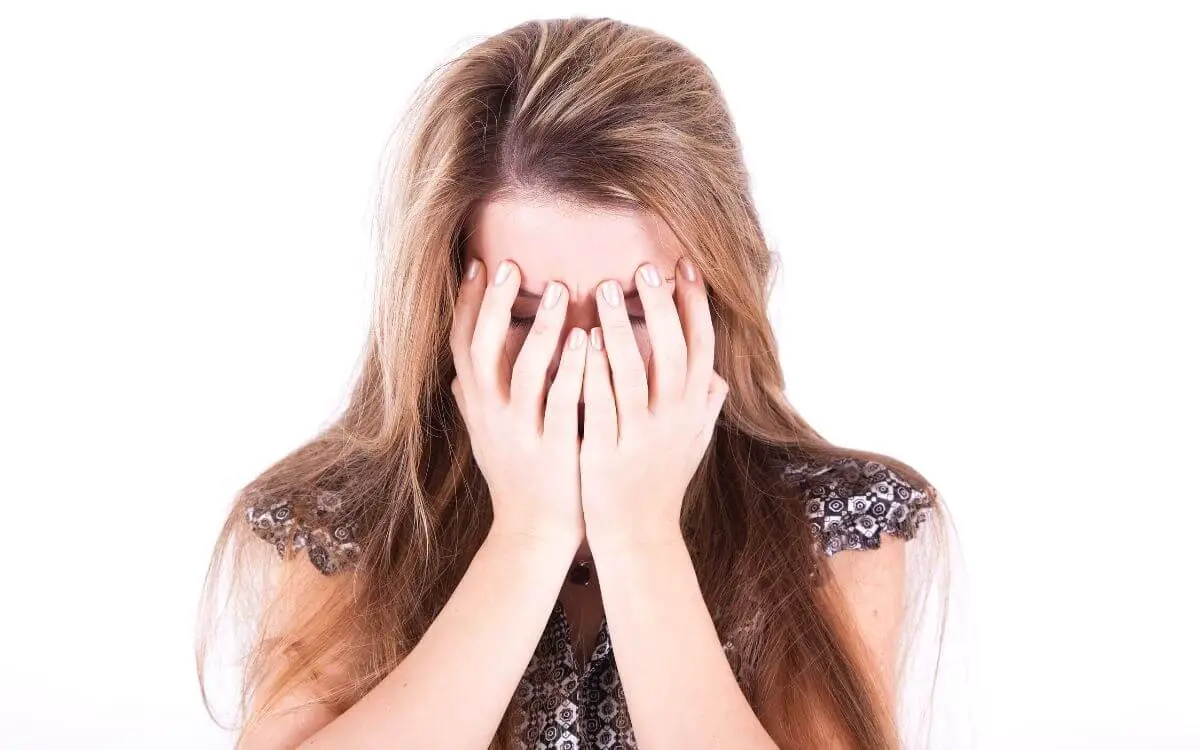
Fidgeting…
When anxiety strikes, fidgeting and jiggling pair up with it.
Your legs might uncontrollably shake without you realizing it. You might play with your hair, your nails, your pocket, or a piece of jewelry.
Whatever it is, sitting still can become a challenge and you could find yourself constantly changing position.
Sometimes you might be aware of it, but there are times when you have no idea that you’re doing it until someone notices it.
Without a doubt, nervousness caused by anxiety gives you the symptoms of fidgeting, which provides a way to relieve you of excess energy and give you something to focus on.
Just like Obsessive Compulsive Disorder sufferers feel the need to do something in order to occupy the mind, fidgeting works in a similar way.
But why?
Since fidgeting is the response to one’s anxiety, it occurs because the body has elevated levels of stress hormones.
If you don’t have any tigers to run away from, all that energy has nowhere to go. Jiggling or fidgeting is a way to relieve that excess of energy.
If you constantly move, fidget, rock or fiddle, then you are never at rest. You never allow things to settle and give your body a break.
Your heart rate then never settles and your muscles will be constantly burning energy. This leads to exhaustion.
Tension.
An anxious person often tenses up. As I mentioned at the beginning of this article, this is a part of the fight-or-flight response to the feeling of danger.
Some people freeze, others run away. But regardless of the response, your muscles are tensed up ready for a quick escape or to attack your enemy.
But the vast majority of people experience a different kind of anxiety.
If you’re not a soldier but are getting ready for a doctor’s appointment or waiting for a meeting with our boss, there’s not anywhere you can run to and there’s no reason to attack.
What happens in such situations, is you stay tense. You feel stuck not knowing where to release this energy.
Often you won’t notice how tense you are until someone else points it out, this is why people’s response to it is to tell you to “relax”.
People wrongly think that it will help you, not realizing the very fact, that you are not able to relax at that exact moment.
The tension that an anxious person goes through can put a lot of strain on the body and leave them feeling drained.
Overthinking!
When you are overthinking, mentally ruminating over things, again and again, worrying about different scenarios, you are putting your brain through stress.
It was previously thought that my wife suffered from GAD (General Anxiety Disorder), but later on, she was diagnosed with OCD (Obsessive-Compulsive Disorder).
These disorders do sometimes cross over, but they manifest themselves in different ways.
One way to understand the difference between GAD and OCD is to think about the behavioral side.
While people with GAD tend to worry a lot about various things, they don’t engage in compulsive and ritualistic behaviors to cope with their anxiety.
However, people with OCD do. Their repetitive behaviors, either physical or mental, are rituals called compulsions, which they engage in to try and relieve the stress they are suffering. Although, these rituals and compulsions ultimately cause them to suffer even more stress and it becomes a vicious cycle.
Both disorders however are mentally exhausting.
In order to understand the connection between anxiety and mental exhaustion, we need to point out the symptoms of exhaustion. They are:
- Foggy head.
- Feeling mentally and physically worn out.
- Finding it hard to concentrate on a task.
- Lack of concentration.
- Forgetting things.
- Feeling irritable.
- Slow thinking.
- Feeling sad or depressed.
- Trouble sleeping.
- Waking up through the night.
- Complete lack of motivation.
- Lack of enthusiasm and enjoyment in life.
At the end of a day of constant thinking, you may often feel stressed. You may feel like the best thing to do would be to “reboot” yourself, in the same way, that a computer does, when crashes and we have to turn it off and on again.
You think that a night of sleep might be the solution and rightly so, but it’s the middle of the day and too loud to even catch a nap.
Your brain might go completely blank for a while making it difficult to think about anything at all.
Getting stuck!
So you get stuck!
My wife lives with OCD and it comes to her naturally, it’s there if she wants it or not. Following particular rules or rituals somehow make her feel safer.
She often ends up following these patterns, because she thinks it helps her life to feel more manageable.
But she can become trapped in the rules that she created, which can lead to a lot of frustration and cause her even more stress.
I’ve seen her cry many times because these rituals were taking over her precious time. Obsessive-Compulsive Disorder is extremely difficult to overcome.
So you might follow the same routine each day, have to check that you’ve locked the door multiple times, or walk a certain way home.
All of the checking in on things and sticking rigidly to your routines can be really hard work and you get stuck in a loop.
As much as these rituals can initially make you feel “safe” they can make you really exhausted, but you will still force yourself to keep going with the rituals and checking behaviors even when you have nothing left to give for fear of something bad happening to you or your loved ones.
This creates the opposite of feeling “safe” and you end up living in constant fear!
And so you keep checking things.
Checking and double-checking to see that you’ve locked the door or getting back to our house just to check that you’ve remembered to turn the lights off, it all can go on and on.
My lovely wife suffers anxiety from overthinking and rumination. She is always trying to find solutions to problems that don’t even exist yet and try to come up with the perfect solution for everything, but we all know that this is impossible, even she knows that but sometimes her mind just cannot stop and this tires her out.
People who don’t suffer from anxiety and/or OCD, do something once, the task is done and they don’t much think about it afterward.
People with anxiety will rethink what they have done or what someone has said over and over and analyze and worry over it.
If someone has OCD they may feel they have to repeat a task four, six, or seven times because they fear they may not have done it right the first time.
As a result, this burns a lot of energy. It’s no wonder they are exhausted.
Checking is one thing but an anxious person might rush things too. When you’re very anxious, you rarely move around slowly, you tend to rush around full speed as if there is not enough time in the day.
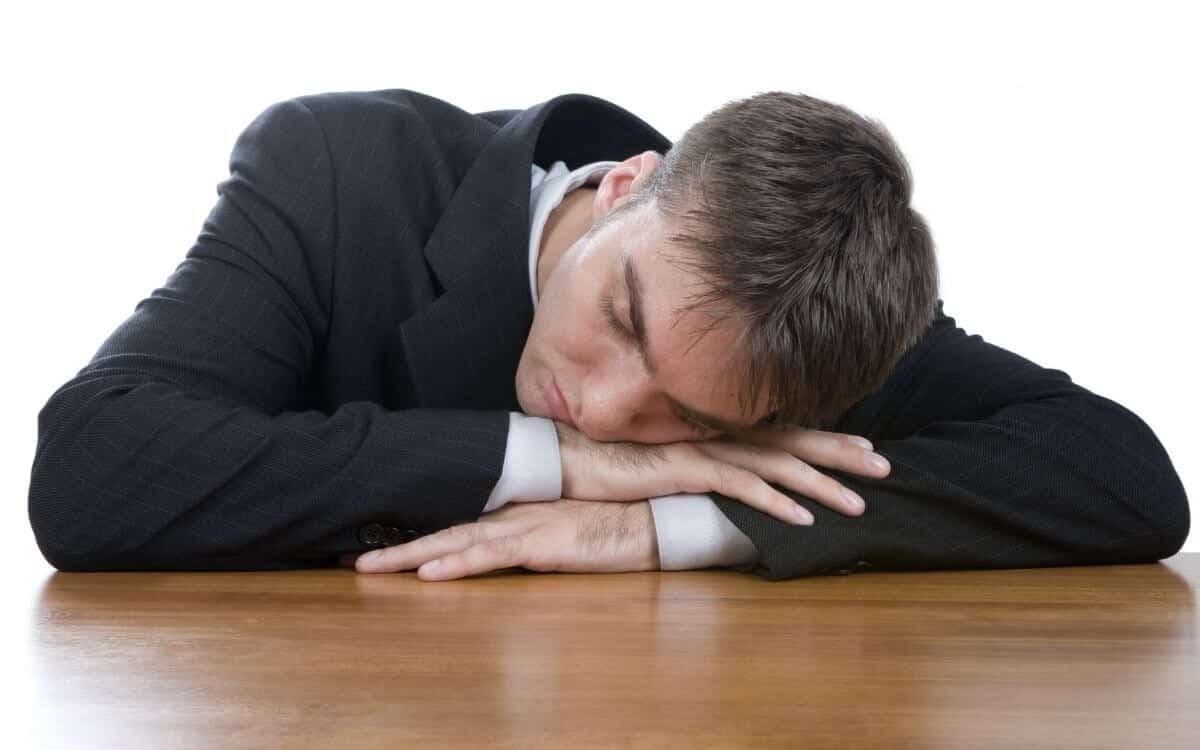
Poor sleep.
The result of all the above drains you of all energy to the point where you would think you would have a good night’s sleep, but the anxiety won’t let you.
Anxiety can have an impact on how much sleep you’re able to get. When trying to go to sleep, your mind will begin to wander. This is the case with my wife.
My wife over-thinks every single evening and she also suffers from endometriosis which gives her additional worry.
I see her in pain on a daily basis, she doesn’t have a rest. Sometimes the pain is so mild she can go and dance for an hour or two before the pain comes back.
She uses every little opportunity to do what she loves, but having to work as well is extremely difficult when she is having a flare of pain and fatigue.
She just soldiers on most of the time, sometimes having a few tears on the way to work or when she gets home to release her frustration helps for a bit, but then it all starts again.
My wife has a lot to think and worry about, hence it’s a never-ending and vicious cycle because the possibility of the pain gives her worry.
Not knowing what the next day is going to bring undoubtedly can be the reason for anxiety, but at the same time, the very anxiety makes her feel tense, and the outcome of it is pain.
The very fact that someone doesn’t see a way out of a cycle causes the person to become depressed.
Often you find that not only are you thinking of the things you need to buy from the shop for your dinner, but you also need to prepare them for your family.
But you are also worried about something that perhaps you said to someone last week and you feel the need to sort it out.
You have a million problems and tasks in your head at once, and you want to sort them out all in at that moment.
But you can’t.
Before you realize it’s evening and you need to go to sleep. But I haven’t sorted this and that, you might think. And what about… and so on…
It doesn’t end when you’re asleep either.
Your dreams can be full of anxiety, taking twists and turns that you don’t want to. You might find that you wake up regularly during the night, sweating, shaking, and feeling breathless and panicky.
When morning finally comes around you will often feel as though you haven’t slept much at all. It’s exhausting.
Fatigue.
Anxiety has a number of physical symptoms. Feeling nauseous may cause your appetite to be non-existent and the thought of food only makes us feel worse.
Any hunger you feel can mix in with nauseous feelings so your system doesn’t always recognize it as hunger.
Drinking can also be difficult, because of the same feeling.
Both combined with needing to go to the toilet more often and sweating can lead to dehydration.
Hunger and dehydration can lead to exhaustion, especially when your anxiety causes you to burn more energy, than if you weren’t anxious all the time.
During the “fight or flight” phase, you’re on high alert all the time, your body is flooded with energy. When your anxiety ends, the adrenaline often runs out. This is called adrenal fatigue and can leave you feeling drained.
So far we mentioned a lot of reasons why anxiety can eventually lead you to exhaustion. But what about a solution?
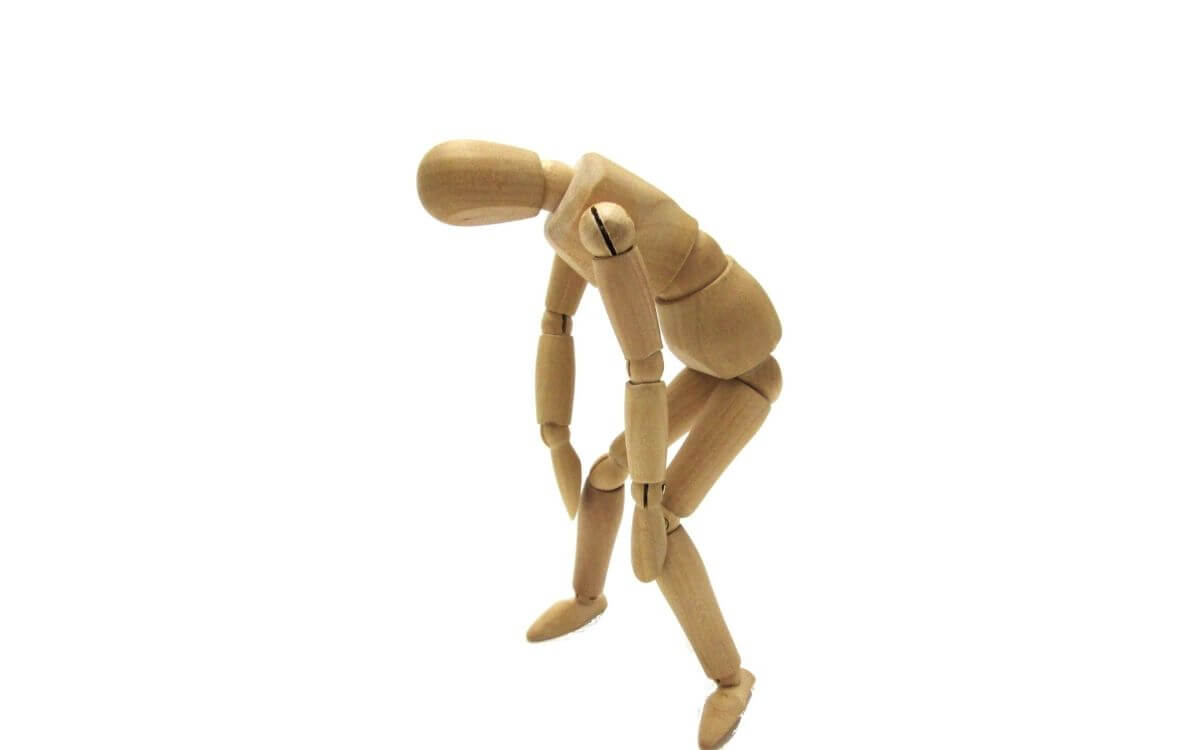
Things that can help…
Let’s look at it closely. With anxiety, you must remember that it can take a little bit of trial and error to find the things that work for you, so this guide is not specified precisely for you.
Every person is different and, because of that, we all have different triggers and respond to the world around us in different ways.
When it comes to tiredness, there are a few things you can do to manage it:
Try to eat a relatively healthy diet and drink enough water. This doesn’t come easy to most people but unfortunately, it’s a must, as it will help you to replenish nutrients and energy that you’re rapidly burning.
Try to cut down or cut out caffeine and alcohol, and reduce your sugar intake to a minimum of 30mg or less per day (equivalent to 7 sugar cubes).
That’s not an easy task since there is sugar in almost everything we eat, but just try to be mindful of how much you are consuming because sugar also has an effect on hormones, stress levels, and inflammation in the body.
Also, if you are going to have caffeine or sugar, consume them in the first part of the day, not after 3 pm.
When it comes to nighttime, practicing good sleep patterns can improve your sleep quality and the speed itself at which you get to close your eyes in the first place.
You might find it helpful to take a hot bath (if you have a tub) before going to bed earlier.
Then maybe reading a book, listening to some relaxing music, or even an audiobook before you drop off to sleep, rather than spending time on your phone, iPad, laptop, or watching TV.
In fact, if you can, turn off your phone and any other appliances that may disturb you at least a couple of hours before bed.
You don’t want to engage in anything that stimulates your mind too much before sleep. You can deal with messages, emails, work, friends, etc. tomorrow.
Obviously, if you need to listen to music etc via one of these appliances then only use it for that, don’t engage in messaging people, or taking phone calls.
I’m not saying it’s going to be easy but following these rules has definitely helped my wife a lot.
Remember this is your time and it is important that you take this time to look after yourself so that you can function well the next day. You need to look after yourself before you can look after other people’s needs and be the best that you can be.
Magnesium is extremely helpful for relaxing both muscles and the mind. Stress, sugar, caffeine, and alcohol all deplete magnesium.
Due to the modern diet and lifestyle most of us are magnesium deficient, so taking a magnesium supplement can help. My wife uses a magnesium oil spray that she sprays on to her muscles after her shower before bed.
She finds it not only stops her muscle spasms but helps her feel relaxed and sleepy. If you have a bathtub Epsom salts are great for helping you feel relaxed, they also contain magnesium which you can absorb through your muscles.
A very important thing you should do throughout the day is to allocate your precious energy to the highest priority tasks.
It can help you to cope with the limited energy that you have. Learning to manage your energy can be frustrating and difficult when you don’t have the energy to do the things that you want or need to do.
But it can also be an essential part of managing your anxiety without burning yourself out.
Through careful management, you can reduce the impact that exhaustion has on your life, so prioritize your energy for what really matters to you.
Taking time for self-care and caring for your basic needs is not selfish.
So don’t worry about what family or people say or do. Again you need to take care of yourself before you can take care and give your full attention to others!
Begin today!
It’s important for you to prioritize your self-care and this should be non-negotiable!
Because doing so will allow you to feel better and be able to cope with whatever life throws your way.
It’s also important that you remember – you’re not alone in this!
There are people who want to help and support you, like myself and my wife, M. We are on both sides of the coin and know how it feels on either side.
Friends, family, mental health services, charities, and your GP are all there if you want to talk to someone, so reach out!
Final thoughts…
Many cases of chronic fatigue are due to stress, anxiety, poor sleep, poor diet, and other lifestyle factors. Start trying to implement these 10 changes in your life to help beat it! Try making small changes at first, every little help!
1. Eat healthy, little, and often.
A good way to keep up your energy throughout the day is to eat regular meals and healthy snacks often. Ideally every 3 to 4 hours, rather than a large meal less often.
2. Get moving (i.e go to the gym, dance, swim, walk, Pilates, Yoga).
Even a single 15-minute walk can give you an energy boost. You might not feel like it but the benefits increase with more frequent physical activity.
3. Sleep well!
Start preparing for bed earlier. Turn off your phone, iPad, laptop, TV, if you can. Take a hot bath shower to relax you. Read a book, listen to some relaxing music, or listen to an audiobook to help you drop off to sleep.
Take magnesium supplements in the day or better still use magnesium spray oil on your muscles before bed, or soak in a bath of Epsom salts!
4. Cut down or cut out caffeine…
Caffeine – a tricky subject. Because we all love coffee. But anyone feeling tired should actually cut out caffeine? Why do you ask?
Coffee makes you dehydrated. Coffee is a diuretic. In other words, it makes you need to urinate. Drinking it to stay awake can quickly lead to a vicious dehydrating cycle that actually makes you more tired.
Caffeine is found in coffee, tea, coca-cola, energy drinks. Try to stay off caffeine completely for a month to see if you feel less tired without it.
5. Cut out alcohol or drink less.
Although a couple of glasses of wine in the evening can help you fall asleep, your sleep quality is poorer because you sleep less deeply after drinking alcohol. The next day you’ll be tired, even if you sleep a full 8 hours.
6. Cut down on sugar intake!
Try to reduce your sugar intake to a minimum of 30mg or less per day (equivalent to 7 sugar cubes), to help reduce inflammation in the body and get hormones back into balance.
7. Drink more water…
You could feel tired and foggy simply because you’re stressed and not drinking enough fluids. Stress can also dehydrate you, so make sure you drink enough water throughout the day!
8. Engage in talking therapies (CBT).
You might find, that talking therapy such as (CBT) cognitive-behavioral therapy, helps you deal with your thoughts and anxieties easier and helps you to decrease your stress levels significantly!
9. Mindfulness.
Mindfulness techniques are helpful to a lot of people to help combat stress – check out some mindfulness apps or mental health websites to find out how to engage in mindfulness. “Headspace” is one of the most popular.
10. Treat yourself with some compassion!
Making all of these changes at once can be a shock to the system itself for some people, so take things to step by step and make just a few changes to see if they help then try a few more.
We understand that doing all of these things may not ever be possible for some people, it all depends on your living situation, whether you have kids to look after on top of everything else, etc.
So invest some time in your well-being and have some compassion for yourself.
You are doing the best you can under your current circumstances and what others think really shouldn’t matter.


About Me
Hi, I’m Lucjan! The reason why I decided to create this blog was my beautiful wife, who experienced a lot of pain in life, but also the lack of information about endometriosis and fibromyalgia for men…
